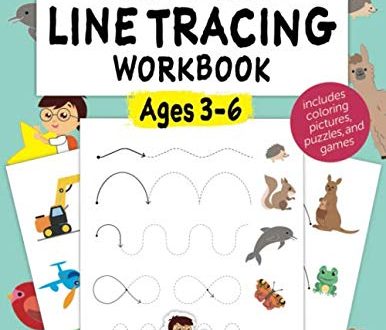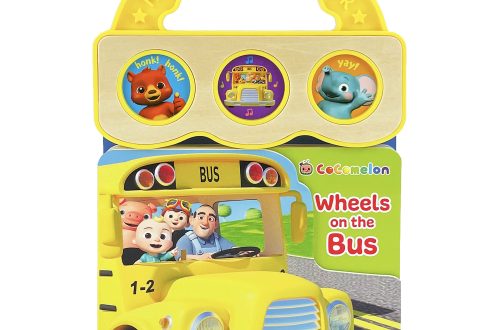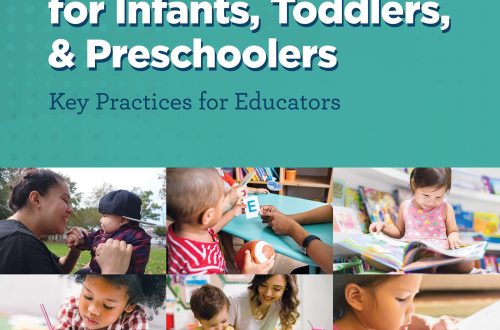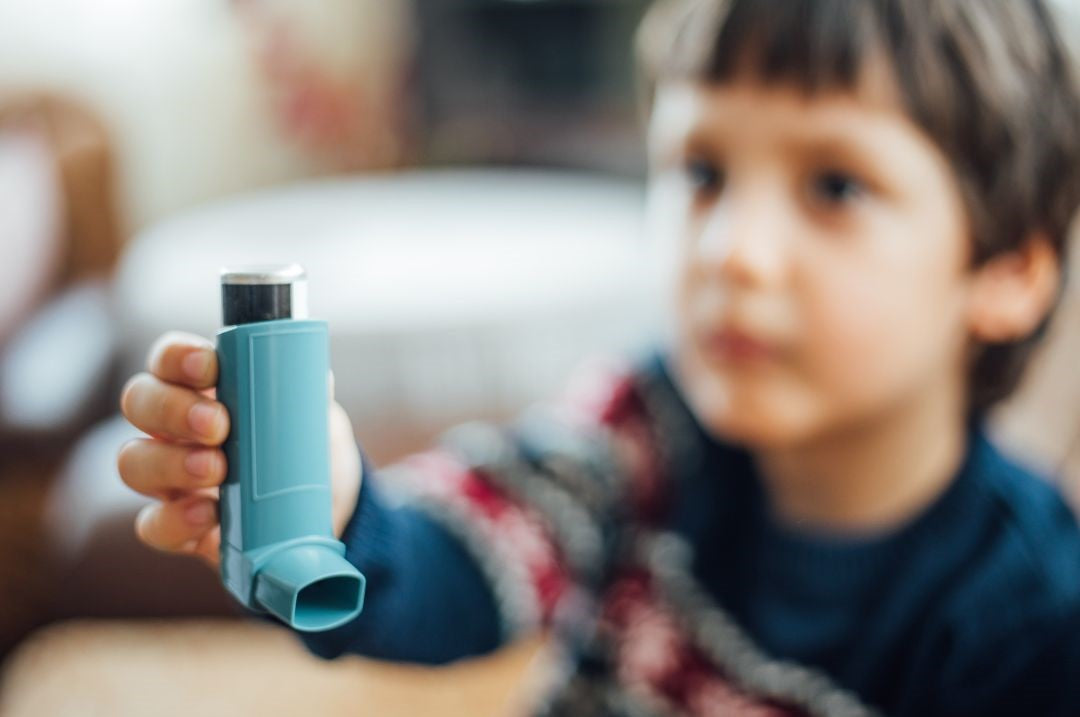
Is My Child Sick or is it Asthma? – The Baby Cubby
When you find out you’re expecting a baby, you are filled with happiness and look forward to the day when you’ll get to hold your darling child. You’ll think about who they will look like, wonder what their features will be, and whether they’ll be a boy or a girl. The most important thing that you will hope for is that they will be healthy and safe. This hope will stay in your heart throughout their entire life! As long as they are healthy, you are happy, and you would take away any pain and suffering that comes their way. So what happens when you notice that your child keeps getting sick? And every time they get sick, they have a hard time breathing? Though there are many possibilities as to what the problem could be, let’s talk about one in particular: childhood asthma.
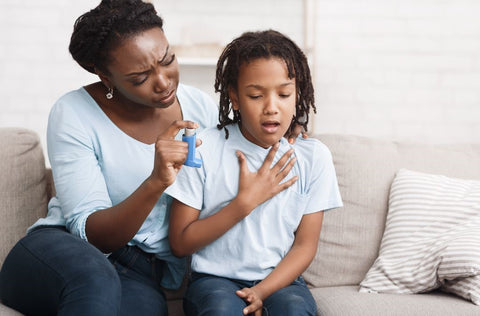
What is Asthma?
According to the National Institute of Health, asthma is “a chronic (long-term) condition that affects the airways in the lungs. The airways are tubes that carry air in and out of your lungs. If you have asthma, the airways can become inflamed and narrowed at times. This makes it harder for air to flow out of your airways when you breathe out.”
According to The Asthma and Allergy Foundation of America, “Around 7.5 million children in the United States have asthma. Asthma is one of the most common chronic (long-term) diseases in children.”
What Causes Asthma?
Asthma can be caused by a number of things. Viral respiratory infections including the common cold or exposure to allergens or air pollution can increase your child’s risk of developing it. A child is also more prone to develop asthma if they have a family history of it–especially if their mother has asthma. Childhood asthma is more common in boys that it is in girls.
There is no cure for childhood asthma, but according to asthmaandallergies.org, “Approximately 50% of children with asthma outgrow their asthma once they reach or pass through adolescence,” so if your child has asthma, it’s comforting to know they may not have to deal with it for their entire lives.
Sometimes, however, the won’t outgrow it, and their asthma will carry into adulthood, so it is important as they grow that they learn to manage their asthma well.
What Are the Symptoms of Asthma in Children?
Asthma signs and symptoms vary from child to child, and sometimes your child may only have one symptom rather than multiple. These are some of the most common symptoms to watch for in infants and toddlers according to The Asthma and Allergy Foundation of America:
Fast breathing
Tightness in the chest
Shortness of breath
Working harder to breathe (nostrils flaring, skin is sucking in around and between ribs or above the sternum, or exaggerated belly movement)
Panting with normal activities such as playing
Wheezing (a whistling sound)
Persistent coughing (worsens with cold air, exercise, or infection)
Difficulty sucking or eating
Tiredness, not interested in normal or favorite activities
Cyanosis, a tissue color change on mucus membranes (tongue, lips, and around the eyes) and fingertips or nail beds – the color appears grayish or whitish on darker skin tones and bluish on lighter skin tones
How Can I Tell the Difference Between a Cough and Asthma?
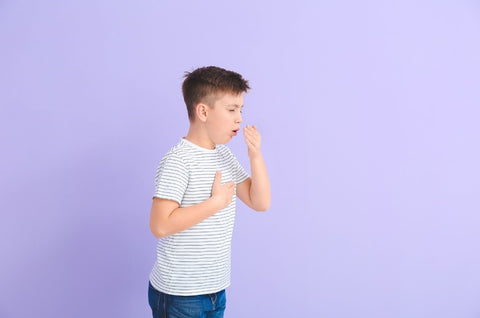
This can be hard to distinguish, but pay attention to the symptoms shared above and the ones below that could be signs of something more than the cough:
Persistent fatigue
Frequent coughing that worsens when your child is sick, sleeping or exposed to cold air
Trouble sleeping, playing, or exercising due to coughing or wheezing
Obviously babies can’t tell you how they’re feeling, and they could be congested for a number of reasons besides asthma. Your toddler may be just as energetic with chest congestion as they are without. It is challenging to know for sure what’s going on. However, you know your child! Listen to your instincts when they tell you something is abnormal. If you suspect your child’s cough is more than just a cough, talk to your pediatrician immediately.
Childhood asthma, especially in babies and toddlers, can be tricky to diagnose since doctors can’t perform the most common test for diagnosing asthma, called a spirometry test.
Instead, your doctor will ask you about your family’s history with asthma and allergies, ask you about your child’s breathing symptoms and triggers, possibly take blood tests, perform allergy tests, and will try out various medicines to narrow down causes.
How do You Treat Asthma in Children?
The good news is that asthma is very treatable. If parents, children, and doctors work together, a child with asthma can lead a healthy, normal life.
With the right treatment, you and your child can keep symptoms under control and prevent damage to growing lungs.
What you can do to manage your child’s asthma:
Work with your child’s pediatrician to make a treatment plan and take medicine as instructed – these can include a mix of quick relief medicines and long term medicines that may be administered through inhalers, nebulizers (small breathing machine with a mask), or as pills
Limit exposure to triggers
Keep your child inside (you can even add an air purifier) when the outside environment is not healthy (inversion, smoke)
Create a treatment plan and share it with others who care for your child (family members, teachers, etc.)
Have your child take steam showers (if old enough to shower)
Ask your doctor about using a vaporizer/humidifier
Have a travel inhaler for in the car or at school, and one for at home only use
Ensure your child exercises to help them build up lung strength
Try an anti-asthma diet, as some food have been shown to help treat symptoms
Encourage hand-washing so common colds don’t turn into asthma flare-ups.
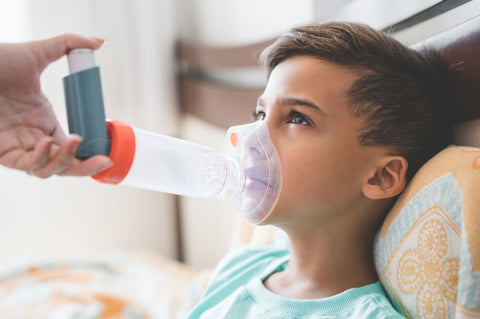
When to Seek Emergency Treatment
Pay attention to your child’s breathing and notice their behavior. They could be at risk of an asthma attack. An asthma attack is when the passageways of the lungs narrow and can feel like all the air has been sucked out of their lungs. They can be very scary, so it is important to have a treatment plan should one happen.
Pay attention to these symptoms:
Your child has to stop talking or activity to catch their breath
They are using abdominal muscles to breathe
They have widened nostrils when breathing in
They are trying so hard to breathe that the abdomen is sucked under the ribs when breathing in
For young children with asthma, call 9-1-1 if they:
Seem drowsy, confused, or troubled
Have a blue tint to the skin and lips
Have a fast heartbeat
You should seek immediate medical care for your child at the ER if their at-home treatments aren’t working or if they have a severe asthma attack.
Our Son’s Experience with Asthma
Unfortunately, we found out that our oldest child had asthma when he was 3 years old. In the beginning, we were nervous and scared because it was something new and unknown to us. We didn’t know how he would move past this.
He would miss school during the cold months, and we would need to check with parents who invited him over for playdates with their child to make sure they didn’t have his allergy triggers in their home.
It felt overwhelming, and still does sometimes. But I can say that it’s been almost four years since our boy was diagnosed with asthma, and though it absolutely breaks our hearts seeing him struggle to breathe and we wish we could take it away every time;, we’ve come a long way and have a plan–we know what to look out for, how to avoid a strong reaction, and what to do when it happens.
If you are second guessing yourself and you’re not sure on what to do or if your child is having an asthma attack, remember to trust your gut and don’t hesitate to call your doctor or go to the ER, because it is always better to be safe than sorry!
I know this may all sound overwhelming right now, but I promise you’re not alone, and neither is your child. You can do this!
To learn more about childhood asthma, read these articles from the mayoclinic.org and Johns Hopikins Medicine.


